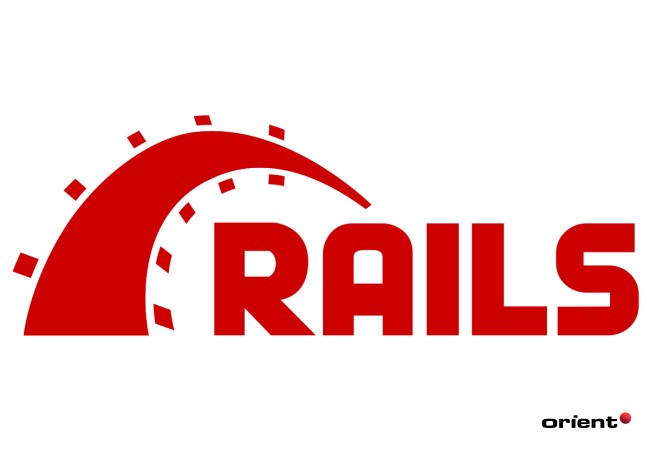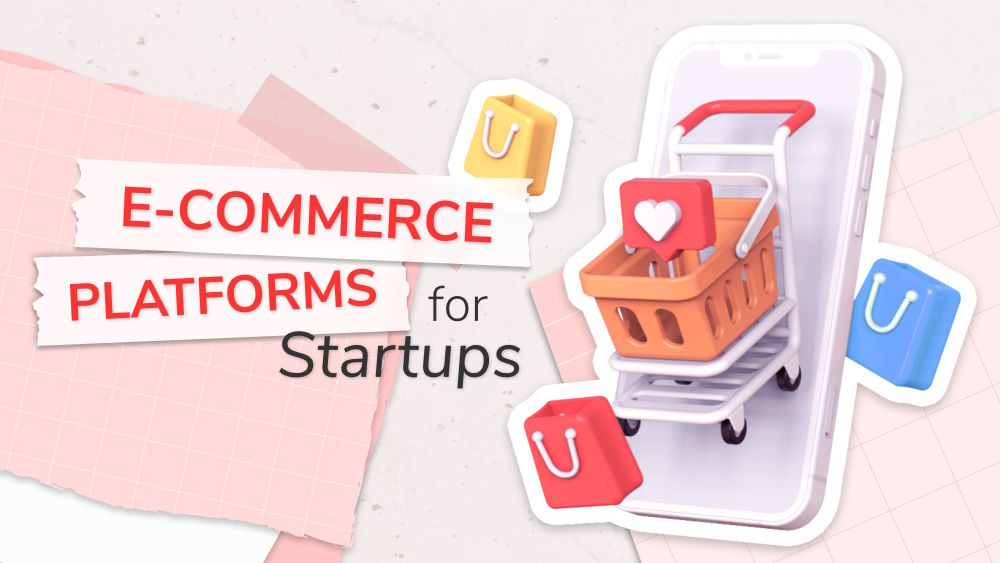
Start Strong with These E-Commerce Platforms for Startups

Content Map
More chaptersStarting an eCommerce business for startups can be an exciting and fulfilling venture, but it also comes with its challenges. Software development companies can provide numerous benefits to businesses, particularly startups that aim to develop custom software solutions to serve their specific purposes. However, if startups do not have a high demand for eCommerce business and simply require basic functionality, they can opt to use eCommerce platforms as a viable alternative solution.
One of the most critical decisions that a startup must make is choosing the right eCommerce platform. With so many options available, it can be overwhelming to determine which platform is best suited for your business needs.
In this article, we’ll provide a list of recommended eCommerce platforms that are ideal for startups. We’ll also discuss the factors to consider when selecting an eCommerce platform, such as budget, scalability, ease of use, features, and integrations. By the end of this article, you’ll have a better understanding of how to choose the right eCommerce platform and which platforms are suitable for startups. With the right eCommerce site in place, you can start strong and set your business up for success.
Factors to Consider When Choosing an eCommerce Platform
When it comes to choosing an eCommerce platform for your startup, there are several factors to consider. Here are some of the most important factors to take into account:
- Budget: Your budget will likely be one of the most significant deciding factors in choosing an eCommerce platform. Some platforms offer a free plan, while others have monthly fees that can range from a few dollars to thousands of dollars. It’s important to determine how much you can afford to spend on an eCommerce platform and choose one that fits within your budget.
- Scalability: As your business grows, your eCommerce platform needs to be able to keep up with your increasing demands. Consider whether the platform can handle a growing number of products, customers, and transactions. Look for a suitable platform that offers scalability options, such as upgrading to a higher-tier plan or adding features as your business expands.
- Ease of use: Your eCommerce platform should be easy to use and navigate, both for you and your customers. Look for a platform with a user-friendly interface, customizable themes, and intuitive tools for managing your store. A platform that’s easy to use can save you time and resources in the long run.
- Features: Different eCommerce platforms offer different features that can enhance your online store. Consider what features you need, such as payment processing, shipping options, inventory management, SEO tools, and customer support. Look for a platform that offers the features you need to run your business efficiently.
- Integrations: Your eCommerce platform should integrate with other tools and services that you use, such as social media, email marketing tools, and accounting software. Consider the integrations that are available for each platform and choose one that offers the most comprehensive options for your business.
Each of these factors is important to consider when choosing an eCommerce platform for your startup. By evaluating each factor and selecting a platform that meets your needs, you can set your business up for success.
What Are the Best Ecommerce Platforms for Startups
Starting an eCommerce store is one of the most accessible ways for startups to reach new customers, develop online businesses, and increase sales. However, with so many eCommerce platforms available, it can be challenging to determine which one is the best fit for your startup. Here are some eCommerce sites that are suitable for eCommerce startups with their features, pricing, pros, and cons to help you make an informed decision.
Shopify
Shopify is one of the most well-known eCommerce platforms for startups, offering an easy-to-use interface and a broad range of features.
Features: easy store setup, mobile-friendly design, a wide range of payment options, built-in SEO features, and a vast library of apps and plugins.
Pricing: starts at $29 per month, with additional transaction fees if you’re not using Shopify Payments.
Pros: ease of use, scalability, and integrated payment options.
Cons: transaction fees and limited design customization.
Key features for startups: Shopify’s ease of use and scalability make it a great choice for startups looking to get up and running quickly without needing technical expertise.
WooCommerce
WooCommerce is a WordPress-integrated free and open-source eCommerce platform. It offers excellent flexibility and customization options, making it a great choice for startups with unique needs.
Features: a broad range of extensions and plugins, integrations with popular payment gateways, and easy product management.
Pricing: free, open-source, with optional paid extensions.
Pros: flexibility, low cost, and ease of use for WordPress users.
Cons: the need for technical knowledge and potential plugin conflicts.
Key features for startups: WooCommerce’s flexibility and low cost make it an excellent choice for startups looking for a customizable eCommerce solution.
BigCommerce
BigCommerce is a cloud-based eCommerce platform that offers an all-in-one solution for startups.
Features: responsive site design, easy product management, a wide range of integrations, and built-in SEO features.
Pricing: starts at $29.95 per month, with no transaction fees.
Pros: scalability, built-in SEO features, and responsive customer support.
Cons: limited design customization and steeper learning curve than some other platforms.
Key features for startups: BigCommerce’s all-in-one solution and responsive customer support make it a brilliant choice for startups looking to streamline their eCommerce operations.
Squarespace
Squarespace is a website builder that includes eCommerce functionality, making it a great choice for startups looking for an all-in-one solution.
Features: easy website setup, mobile-friendly design, a wide range of templates, and built-in SEO features.
Pricing: starts at $18 per month, with transaction fees for non-Squarespace payment gateways.
Pros: ease of use, professional design templates, and built-in SEO features.
Cons: limited customization options and transaction fees for non-Squarespace payment gateways.
Key features for startups: Squarespace’s all-in-one solution and professional design templates make it an excellent choice for startups looking to create a polished eCommerce website.
Wix
Wix is a website builder that includes eCommerce functionality, making it a great choice for startups looking for an all-in-one solution.
Features: easy website setup, mobile-friendly design, a wide range of templates, and built-in SEO features.
Pricing: starts at $23 per month, with transaction fees for non-Wix payment gateways.
Pros: ease of use, professional design templates, and built-in SEO features.
Cons: limited customization options and transaction fees for non-Wix payment gateways.
Key features for startups: Wix’s all-in-one solution and ease of use make it a great choice for startups looking to quickly create a professional eCommerce website.
While there are several other eCommerce platforms available, the best platform for starting eCommerce stores will depend on the startup’s specific business needs and goals.
Ultimately, the best eCommerce platform for startups is one that offers a user-friendly interface, scalable functionality, customization options, and affordable pricing. Platforms like Shopify, WooCommerce, BigCommerce, Squarespace, and Wix are all popular choices for startups looking to build their e-commerce stores.
By taking into account the challenges that startups face when applying eCommerce platforms, startups can make informed decisions about which platform will best suit their needs. With the right eCommerce platform in place, startups can build a successful online store that drives sales growth and helps them achieve their business goals.
Challenges Startups Are Facing When Applying eCommerce Platforms

While eCommerce platforms have become an essential tool for startups looking to sell their products or services online, they are not without their challenges. Here are some of the common challenges that startups face when applying eCommerce platforms.
Technical Expertise
The need for technical expertise is one of the biggest challenges that startups face when applying eCommerce platforms. While many platforms like Shopify and Squarespace are designed to be user-friendly, they still require a certain level of technical knowledge to set up and customize. This can be a significant hurdle for startups that don’t have an in-house technical team or the budget to hire external experts.
The lack of technical expertise can lead to mistakes in setting up the platform, which can lead to poor user experience for customers or even cyber security vulnerabilities that could compromise the startup’s data.
Cost
Cost is another significant challenge that startups face when applying eCommerce platforms. While some platforms, like WooCommerce, are free to use, they still require additional costs for hosting, plugins, and other features.
Platforms like Shopify and BigCommerce have monthly fees, which can be a significant expense for startups that are just starting out. Startups may also face additional costs for marketing, customer support, and other aspects of running an online store.
Customization
Customization is another challenge that startups face when applying eCommerce platforms. While many platforms offer a range of customization options, startups may still face challenges in creating a unique and branded online store. This can be particularly challenging for startups that have limited resources and need to rely on pre-built templates or free themes.
Lack of customization can lead to a generic and unremarkable online store that fails to stand out in a crowded market.
Marketing and Customer Acquisition
Even with a well-designed and user-friendly online store, startups still face challenges in marketing their products and acquiring new customers. This can be particularly challenging for startups that are competing in crowded markets or selling niche products.
Startups need to develop effective marketing strategies, such as search engine optimization (SEO), pay-per-click (PPC) advertising, or social media marketing, to reach the target audience and drive traffic to their online store. A lack of effective marketing can result in low visibility and low sales.
Security and Compliance
Online security and compliance are critical considerations for any eCommerce platform. Startups need to ensure that their online store is secure and compliant with regulations like the General Data Protection Regulation (GDPR) and the Payment Card Industry Data Security Standard (PCI DSS). Failure to comply with these regulations can result in fines, legal liabilities, and damage to the startup’s reputation.
Startups need to invest in security measures like SSL certificates, two-factor authentication, and regular security audits to protect their customers’ data and prevent cyber security risks.
Final Suggestions
It’s crucial for startups to carefully consider their unique business needs and goals when selecting an eCommerce platform. By choosing the right platform, startups can create a user-friendly, scalable, and customizable online store that drives sales growth and helps them achieve their business objectives.
We have included five eCommerce systems that are suited for startups in this list. You might be wondering which one we recommend the most. While each platform has its own distinct capabilities, we feel that WooCommerce is the best option when weighing the total benefits and drawbacks. It offers comprehensive assistance for both large and small online businesses. Furthermore, once you begin using WooCommerce, you will notice a plethora of third-party tools and plugins built by hundreds of developers that may be beneficial to modern eCommerce firms.
We encourage startups to take action and select the best eCommerce platform for their own online business. It’s also essential to consider technical support for operating the online eCommerce platform. Orient Software can provide diverse services and support for startups to ensure a smooth and successful launch of their online store. By taking the time to choose the right eCommerce platform and partnering with the right technical support, startups can set themselves up for success in the competitive world of eCommerce.






